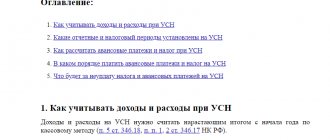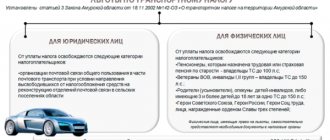All car owners who purchase vehicles are aware of the Tax Code of the Russian Federation, according to which owners of motor vehicles are required to pay annual transport fees.
Due to the fact that vehicles fall under the category of movable property, some owners of the units must also pay this duty.
Both individuals and legal entities and organizations that are less fortunate have motor vehicles. After all, no measures were taken in their regard to abolish the property tax on movable units.
Therefore, institutions should be aware of vehicle tax issues.
The legislative framework
The definition of the category “movable property” is in the Civil Code of the Russian Federation in Art. 130. All property is divided into known real estate and movable objects.
The first type of objects includes land and everything that is located on it, property that cannot be moved without causing significant damage. This includes objects and unfinished construction structures.
This also applies to the category of real estate of inland navigation vessels that are registered in the name of the state.
All other objects of taxation, such as financial assets and capital (money), documents, cars and everything that can move or move without causing harm to others are considered movable property.
Do individuals pay?
Most car owners, as a result of purchasing a car, wonder whether they need to pay property tax in addition to the key duty - transport tax?
The answer is simple, you don't need to pay anything. Since the beginning of 2013, all individuals have been exempt from paying property tax on vehicles.
All motor vehicles that were registered both before the date of adoption of the order and later than January 1, 2013 were exempt from this duty. This applies to individuals.
Companies and organizations whose vehicles were registered before the specified date will have to pay the full cost of the duty. As a result, institutions began to cheat and try to circumvent the law.
They began decommissioning cars purchased before January 1 and registering new vehicles. But the tax inspectorate quickly took up this issue.
The owners of the companies, in their appeals and letters to the tax service, referred to the fact that the transport was not used and demanded additional installation of equipment, thus evading payment of duties on movable property.
And motor vehicles began to be used only after amendments were made. Institutions tried to find a way out and a compromise with the tax authorities, while individuals did not know trouble.
After all, the owners of the units, represented by a Russian citizen, do not need to pay tax on movable property; they only need to pay transport taxes.
As it says in v. 130. The Civil Code states that movable property includes cars and other types of transport.
However, there are exceptions for individuals to pay movable property tax. Although this type of transport is rarely found among ordinary citizens.
This refers to aircraft and space rockets that must be registered. However, even the largest corporations, let alone individuals, do not have these units and installations.
The majority of Russian citizens are misled by the erroneous fact that when purchasing a motor vehicle, the owner thinks that he becomes the owner of the property.
In fact, this is true, but this is the acquisition of movable property, and property tax applies only to non-movable objects, that’s all the difference.
An institution that owns certain vehicles that are subject to property tax may be subject to taxation. But this type of transport is very rare and very few institutions have it.
Find out what transport tax benefits are available for labor veterans from the article: transport tax benefits for labor veterans.
How to calculate transport tax for a motorcycle, see here.
The essence of innovations regarding movable property from 2021 (Article 381.1 of the Tax Code of the Russian Federation)
In 2021, the chapter of the Tax Code of the Russian Federation, dedicated to the property tax of organizations, was supplemented with Art. 381.1, which clarified the procedure for applying the benefits provided for in paragraph 25 of Art. 381 and exempting from tax movable property registered after 01/01/2013.
According to Art. 381.1 of the Tax Code of the Russian Federation, the issue of applying this benefit since 2018 is left to the discretion of the regions. That is, if the law of the subject provides for such a benefit, then it will be applied. If the region does not adopt the corresponding law, then movable property registered after 01/01/2013 will have to be included in the corporate property tax base from 2021 (clauses 69–70, article 2 of the law on amendments to the Tax Code of the Russian Federation dated November 27. 2017 No. 335-FZ).
At the same time, tax rates determined by regional laws in relation to the property specified in paragraph 25 of Art. 381 of the Tax Code of the Russian Federation, not exempt from taxation in accordance with Art. 381.1 of the Tax Code of the Russian Federation cannot exceed 1.1% in 2021.
Regions establish benefits for movable property differently, for example:
- in the Astrakhan region (Law of the Astrakhan region dated October 31, 2017 No. 60/2017-OZ), the benefit covers movable property (accepted for registration after 2013) only of organizations extracting hydrocarbons from offshore fields located in the Russian part of the Caspian Sea bottom (applies reduced tax rate 0.5%);
- in the Volgograd region (law of the Volgograd region dated November 29, 2017 No. 116-OD), all organizations for movable property must apply a rate of 1.1%;
- in the Lipetsk region (Law of the Lipetsk region dated September 14, 2017 No. 106-OZ) there is a benefit for all organizations providing for complete exemption from taxation of movable property.
For information on the conditions that make it possible to apply benefits for movable property, read the material “Tax on movable property of organizations from 2021.”
Is transport subject to corporate property tax?
There are no problems with individuals; all very simple vehicles are not subject to property tax in 2021.
But regarding legal authorities, many questions arise about who is obliged to pay movable property tax and for what, and who is granted benefits or exemption from paying duties. Let's talk about everything in order.
As the Tax Code of the Russian Federation states, art. 374 after amendments were made in 2013, all movable property registered after January 1, 2013, and registered as a fixed asset, is not subject to duty.
This includes all units that have the third depreciation group in the classification rank. That is, machines that work usefully from 3 to 5 years.
As a result, accountants, referring to the amendment to the Tax Code when calculating the tax on movable property, did not include this type of transport.
But in 2021, the Tax Code has changed, and in Art. 374. it says the following: units that belong to the first and second depreciation groups (operation of cars from 1 to two years, and from two to 3 years) are not those that are subject to taxation.
That is, the changes affected the registration date and time of registration of units for organizations.
Accordingly, all institutions do not have to pay movable property tax, even if the car was purchased and registered before January 1, 2013. But this concerns the first two groups, what to do with the third?
As stated in the Tax Code Art. 381 “Tax benefits”, then this type of transport falls under preferential taxation. That is, the tax is required, but is not paid as a result of the provision of benefits prescribed in tax legislation.
In other words, companies do not need to pay tax on movable property purchased after January 1, 2013.
Nuances of applying the current benefit
If movable property taken onto the balance sheet as a result of reorganization is not taken into account as fixed assets, after its transfer to fixed assets, the restriction regarding the impossibility of applying benefits to transactions between related parties does not apply (letter of the Federal Tax Service of Russia dated April 18, 2021 No. BS- 4-11/6740).
And the letter of the Federal Tax Service of the Russian Federation dated March 13, 2015 No. ZN-4-11/4037 states that fixed assets made from materials acquired after January 1, 2013 from a related party are not subject to corporate property tax. After all, the inventories from which the fixed asset is made are not subject to property taxation on the basis of Article 374 of the Tax Code.
Another situation. Under a construction contract, the contractor independently purchases equipment that requires installation and carries out installation work. Then the finished movable property is transferred to the customer, who is an interdependent party with the contractor. As the Federal Tax Service of Russia indicated in letter No. BS-4-11/12245 dated July 8, 2016, the exemption from property tax established by paragraph 25 of Article 381 of the Tax Code of the Russian Federation does not apply to such movable property.
What benefits are there?
Institutions that have at their disposal motor vehicles belonging to the third depreciation group can take advantage of benefits for paying property duties for organizations on movable assets.
Objects that are registered as a result of the liquidation of legal entities or their reorganization are deprived of preferential discounts.
Preferential programs for property duties are provided for organizations that are participants in the free economic zone, namely for purchased motor vehicles for the purpose of using them and conducting business for 10 years.
These benefits and amendments to legislation are aimed at avoiding tax evasion. After all, most legal entities, as a result of the reorganization of the institution, are trying to hide from debts to the state.
Due to changes in the law and amendments, not a large number of new taxpayers will be added.
After all, the majority of institutions will be exempt from paying duties as a result of using benefits (for the third depreciation group) or complete exemption from fees if motor vehicles belong to the first and other classification categories.
Controversial issues
Owners of organizations have controversial issues regarding benefits and nuances in obtaining them.
On the one hand, objects of movable property of the third depreciation group are subject to taxation. But on the other hand, institutions are not taxed, but receive a benefit and are deprived of an annual fee.
This information confuses many experienced accountants who doubt the inclusion of vehicles owned by organizations in the total property tax amount. After all, companies, unlike individuals, calculate their own taxes.
All taxpayers are divided into two groups – individuals and legal entities. Regarding the former, they are completely exempt from paying duties on movable property, with the exception of having jet rockets and spacecraft registered in their name.
For legal entities the situation is somewhat more complicated. This is due to the confusion surrounding laws and amendments to the Tax Code.
We conclude that organizations do not pay tax on movable property belonging to classification groups 1 and 2, but receive benefits regarding the third.
How to return transport tax to a pensioner is discussed in the article: how to return transport tax.
The deadline for payment of transport tax in 2021 by individuals can be found on the page.
There is information about the increasing coefficient for transport tax in 2021 for legal entities.
Payment procedure and terms
For individuals, employees of the Federal Tax Service are responsible for calculating the tax amount. After this operation is completed, the citizen must receive a notification by mail containing information about the timing and amount of tax payment.
If the notification has not been received, the person should independently contact the nearest tax office and clarify information on this issue.
Otherwise, the citizen may receive late fees or be brought to tax liability.
A citizen can check the accuracy of the tax inspectorate’s calculations by first checking the cadastral value of the taxable object and the tax rate in force in a given region. The tax notice must arrive no later than one month before the payment deadline. Federal Tax Service employees have the right to collect tax for no more than 3 past years. If the last possible tax payment day falls on a weekend or holiday, the tax payment deadline will be the business day closest to that date.
The deadline for paying property tax for individuals is December 1 of the year, which is the tax period.
Legal entities must independently calculate the amount of tax. No later than March 1 of the year following the end of the tax period, legal entities are required to transfer funds for property tax, as well as submit reporting documentation for the year.
For this category of citizens, quarterly advance payments for property tax are also provided, which amount to 1/4 of the total tax amount.
As a rule, tax rates are determined by the regional authorities. However, they cannot exceed the maximum value established by Federal laws.
Tax payment can be made in one of the following ways:
- at the cash desk of any bank;
- through payment terminals;
- through ATMs;
- using mobile banking;
- on the tax service website through the taxpayer’s personal account.
Find out how personal property taxes are calculated. Who files a property tax return? Information here.
Are there any benefits for pensioners on the property of individuals? Details in this article.
When a car is not subject to property tax
January 20, 2021 2443
In February 2015, the organization purchased a car with a service life of 37 months from a third-party organization that is not interdependent in relation to this organization. The car was not purchased as a result of reorganization or liquidation of legal entities. Is the vehicle in question subject to property tax?
The object of taxation is movable and immovable property recorded on the balance sheet of an organization as fixed assets (clause 1 of Article 374 of the Tax Code of the Russian Federation).
From January 1, 2015, fixed assets included in the first or second depreciation group are not recognized as objects of taxation for property tax (Classification of fixed assets, approved by the resolution of the Government of the Russian Federation dated January 1, 2002 No. 1; subparagraph 8, paragraph 4, art. 374 of the Tax Code of the Russian Federation; clause 55 of article 1. part 5 of article 9 of the Federal Law of November 24, 2014 No. 366-FZ (hereinafter referred to as Law No. 366-FZ)). In this case, the date of acceptance of fixed assets for registration does not matter (letter of the Ministry of Finance of Russia dated July 16, 2015 No. 03-05-05-01/40829, Federal Tax Service of Russia dated August 7, 2015 No. BS-4-11 / [email protected] ).
In this situation, a car purchased in February 2015 has a useful life of 37 months. Consequently, according to the Classification, such a car is classified as the third depreciation group.
On the issue of taxation of movable property included in other depreciation groups, registered on January 1, 2013 as fixed assets, one should be guided by a different norm (clause 25 of Article 381 of the Tax Code of the Russian Federation; letter of the Ministry of Finance of Russia dated October 8, 2015 No. 03- 05-05-01/57549, from 06.10.2015 No. 03-05-05-01/57030. from 20.08.2015 No. 03-05-05-01/48167. from 29.07.2015 No. 03-05-05-01 /43678 ). From January 1, 2015 (clause 25 of article 381 of the Tax Code of the Russian Federation; clause 57 of article 1. part 5 of article 9 of Law No. 366-FZ) organizations are exempt from property tax in relation to movable property adopted from January 1, 2013 year to be registered as fixed assets, with the exception of the following movable property items registered as a result of:
- reorganization or liquidation of legal entities;
- transfer, including acquisition, of property between persons recognized as interdependent (clause 2 of article 105.1 of the Tax Code of the Russian Federation).
Thus, subject to the above conditions, the movable property of an organization registered after January 1, 2013 is not subject to property tax (letter of the Ministry of Finance of Russia dated December 16, 2015 No. 03-05-04-01/73730, dated May 13, 2015 No. 03-05-05-01/27322. dated 03/18/2015 No. 03-05-05-01/14636. Federal Tax Service of Russia dated 05/29/2015 No. BS-19-11/111).
As follows from the question, in this situation the car was purchased in February 2015 from a person who is not related to the taxpayer. Also, the car was not purchased as a result of reorganization or liquidation of legal entities. Consequently, such a car is not subject to property tax (letter of the Ministry of Finance of Russia dated July 14, 2015 No. 03-05-05-01/40374).
The material was prepared by experts from the Legal Consulting Service of the GARANT company
Taxable property in 2021
Article 374 of the Tax Code of the Russian Federation defines the criteria for taxable property.
Unfortunately, the criteria given are very general. In particular, legislators did not specify what property is considered real estate.
Official explanations come to the rescue. Pay attention to the letter of the Federal Tax Service of the Russian Federation dated October 1, 2018 No. BS-4-21 / [email protected] This document refers to Art. 130 Civil Code of the Russian Federation. It reflects an approximate list of such objects:
- land;
- subsoil areas;
- objects firmly connected to the ground, the movement of which without damaging their purpose is impossible (buildings, structures, unfinished construction objects, as well as residential and non-residential premises and parking spaces, if they are subject to cadastral registration);
- aircraft and sea vessels, inland navigation vessels that are subject to mandatory state registration, as well as other objects provided for by Russian legislation (for example, space objects).
Are cars subject to property taxes?
There is a misconception that in Russia, in addition to the transport tax for owning a vehicle, you will have to pay property tax for the car.
This is not at all true, and today you will find out how transport tax and property tax differ, and whether property tax is paid on vehicles owned by individuals and organizations.
Dear readers! Our articles talk about typical ways to resolve legal issues, but each case is unique.
If you want to find out how to solve your particular problem, please use the online consultant form on the right or call. It's fast and free!
For transport
As stated at the level of federal legislation, the rate of transport tax (TN) is regulated by regional authorities .
TN must be paid by citizens living throughout the country. All money raised from the tax ends up in the local budget.
All citizens of the Russian Federation who own cars and other vehicles must pay TN . This is stated in the three hundred and fifty-seventh article of the Tax Code of the Russian Federation. The same applies to companies with vehicles on their balance sheets.
Organizations have to independently calculate the amount of advance payment and the tax itself. This is done for individuals by employees of territorial tax authorities based on information about the state registration of the car.
TN is calculated based on the results of a certain period, which is called the tax period. The amount consists of the established rate, the base and the number of cars owned by the citizen . Companies calculate the difference between the TN itself and the amount of advances that were made during the tax period and determine the amount of tax.
For organizations, advance amounts are calculated after the end of the reporting period. This is 1/4 of the product of the current base and the rate, as stated in the three hundred and sixty-second article of the Tax Code of the Russian Federation.
What objects are subject to TN?
The objects for which the TN is valid are mentioned in the three hundred and fifty-eighth article of the Tax Code of the Russian Federation. In particular, you will have to pay for:
- automobile;
- motorbike;
- buses, self-propelled, tracked vehicles;
- boats, sailboats, cutters, helicopters, towed vessels, snowmobiles, airplanes and water or air transport.
Regardless of whether a citizen owns a car or an airplane, he must register the vehicle in accordance with the procedure provided for by law.
What do you not need to pay for?
Also, by law, you can not pay for some vehicles . We are talking about an impressive list that is required to be studied. So, you do not need to pay tax for:
- A rowing boat or motor boat, the engine power of which is no more than 5 hp.
- Passenger cars converted for disabled people, passenger cars with an engine no more powerful than 100 hp. purchased with the help of social security .
- River and sea vessels intended for fishing.
- Vessels that are the property of an organization or businessman engaged in transporting people or goods by water .
- Agricultural machinery owned by farms . used for the manufacture of products. This includes a variety of machines, ranging from tractors, combines, milk and livestock tankers, poultry carriers, fertilizers, maintenance, etc.
- Cars and other vehicles that belong to government authorities, for example, military, intelligence or law enforcement agencies .
- Vehicles stolen or stolen are wanted . In this case, you need to obtain a document that confirms the theft of a car or other vehicle.
- Aviation and medical helicopters, airplanes, as well as ships included in the international register, are stated in the three hundred and fifty-eighth article of the Tax Code of the Russian Federation.
What are the objects of taxation?
Two types of taxes can be charged for cars: transport and property, when considering the car as movable property.
Transport tax is required to be paid for citizens living in the Russian Federation, regardless of the region where the transport is registered. This is regulated by Article 357. Tax Code of the Russian Federation. The same rule applies to organizations whose fixed assets include vehicles.
Companies must independently calculate the amount of tax and advance payments for it. Federal Tax Service employees do this for individuals, based on information from state registration services.
Transport tax is calculated based on the results of the tax period. The tax amount will be affected by the rate, tax base and the number of cars owned by the person.
Transport tax is subject to:
- automobile;
- motorbike;
- bus;
- self-propelled tracked vehicles;
- boats, sailboats, speedboats, helicopters, snowmobiles, airplanes and water or air transport.
Tax may not be paid for the following types of transport:
- Motor or rowing boat, the engine power of which does not exceed 5 hp.
- Passenger cars intended for disabled people and purchased with social security funds, the engine power of which does not exceed 100 hp.
- Fishing sea and river vessels designed to transport people or goods by water and owned by organizations or businessmen.
- Equipment intended for agricultural work, provided that it is owned by peasants or farms.
- A vehicle owned by authorities or various government departments.
- Aviation equipment designed to provide medical services in remote areas of the country.
- Vessels that are registered in the international registry.
The above categories of vehicles are exempt from paying tax in accordance with Article 358 of the Tax Code of the Russian Federation.
Under property tax movable assets we mean cars, production equipment, furniture, money, computers and other taxable objects that do not fall under the category of real estate.
Payers
Property tax is levied on movable and immovable assets:
- in use, temporary possession, permanent use, trust management;
- used for joint activities;
- received after concluding a concession agreement;
- listed in the possession of an individual or on the balance sheet of fixed assets of an enterprise.
A detailed list of taxable objects can be found in Art. 401 of the Tax Code of the Russian Federation.
For property
Property tax is a mandatory tax . the rate of which is also regulated by local legislators. The money raised from its collection is credited to the regional budget.
The procedure for imposing property taxes is prescribed in the thirty-second chapter of the Tax Code of the Russian Federation. The Federal Law dated December 9, 1991, numbered “2003-1,” is invalidated on January 1 of the current year.
It is also necessary to pay property tax in the case when property is transferred for temporary use, possession, or received by agreement. Both domestic and foreign organizations must pay . whose property is located on the lands of the Russian Federation.
Individuals who have property specified in the above law had to pay the tax until December 31 of last year.
Until the beginning of 2015, Russians paid taxes on the following property:
- apartments;
- rooms;
- houses, garages, dachas;
- other buildings and premises;
- share in property.
Now you need to pay for the following property:
- apartment or residential building;
- garage, real estate complex, unfinished house;
- other premises.
Buildings standing on land allocated for summer cottages, vegetable gardens, gardening, or on a housing construction site are residential buildings. Accordingly, they are taxed. Property located in an apartment building is exempt from payment.
Tax deduction
The amount of tax deduction is the minimum tax-free area, it depends on the type of housing and is:
- 20 sq. m of cadastral value for an apartment;
- 50 sq. m – for a residential building;
- 10 sq. m - for a room.
The tax deduction does not apply to apartment owners - only to apartments and rooms. And owners of luxury mansions with a large area have the right to take advantage of the benefit and reduce the tax base by the cost of 50 square meters. m area. If the cadastral value of 1 m2 in a country house is 900,000 rubles, then the tax deduction will be 900,000 x 50 = 45,000,000 rubles.
Families with three or more minor children have the right to apply for a tax deduction for 5 square meters. m in an apartment or 7 sq. m in a residential building for each child under age. If a family lives in an apartment and is raising three minors, then its area is 15 square meters. m (in addition to 20 sq. m) is not taxed.
What exactly should I pay?
Since January 1, 2013, Russians have been exempted from movable property tax.
The legislation understands movable property as property such as cars, machines, furniture, money, computers, office equipment and more. The corresponding amendments were adopted by the Federation Council and signed by the head of state.
Exemption from payment of such tax applies to any movable property that was registered on January 1, 2013 . or later.
At the same time, taxpayers who have movable property registered before 2013 will have to pay for the entire service life of the object (fair for organizations).
The companies tried to cheat and decided not to use movable property until 2013, but the tax authorities immediately became interested in this fact . And the heads of the enterprises wrote that vehicles or other equipment were not used, since they required special installation and assembly before starting work (we are talking about special equipment). Therefore, facilities were put into operation only in time for the new amendments to take effect.
Fortunately, while organizations had to adapt to the new requirements of the law “On Property Tax,” car owners—individuals—did not encounter any difficulties .
Do I need to pay property tax on my vehicle? The car owner is required to pay only transport tax .
Article 130 of the Civil Code of the Russian Federation makes it very clear that cars and other types of transport are recognized as movable property.
In this case, the only exceptions are those vehicles that are unlikely to be owned by an ordinary citizen.
We are talking about airplanes, space rockets and watercraft that are subject to state registration - these types of vehicles are subject to property tax, but most organizations do not have this.
All other cars: domestic or foreign cars, trucks, minibuses and other vehicles are not considered real estate, therefore, their owner must pay TN. This was directly confirmed by the Federal Tax Service of Russia in a statement dated February 18, 2013.
In most cases, confusion with these taxes occurs due to simple ignorance. Citizens mistakenly think that when buying a car, they are acquiring property . In principle, the train of thought is correct, however, the vehicle is movable property, and you will not have to pay property tax. But you need to pay TN - this cannot be avoided if there are no benefits.
The owner of a simple car will not have to pay additional tax . Some exceptions exist for companies, but rarely does any organization have vehicles that fall under the requirements at which property tax begins to apply. It is impossible to talk about the identity of transport and property taxes.
Didn't find the answer to your question? Find out how to solve exactly your problem - call right now:
+7 (Moscow) +7 (St. Petersburg)
It's fast and free!
Re: Property tax - car base on the balance sheet of a company on the OSN
“Since 2015, movable property that is not classified in the first or second depreciation group in accordance with the Classification of fixed assets is subject to corporate property tax in accordance with paragraphs. 8 clause 4 art. 374 of the Tax Code of the Russian Federation, set out in the new edition (for more details, see Practical commentary on the main changes in tax legislation since 2015). However, paragraph 25 of Art. 381 of the Tax Code of the Russian Federation provides for companies an exemption from paying this tax in relation to movable property registered as fixed assets from January 1, 2013. This benefit does not apply if it was adopted as a result of the reorganization or liquidation of legal entities. Also subject to taxation are movable property registered on January 1, 2013 as a result of its transfer (including acquisition) from one person to another, if these persons are recognized as interdependent by virtue of clause 2 of Art. 105.1 Tax Code of the Russian Federation." and I realized that since 2015, the O.S. only those in groups 1 and 2+ that were introduced in 2013 are not taxed
Re: Property tax - car base on the balance sheet of a company on the OSN
Read carefully Here is another letter of clarification for you.
Ministry of Finance of the Russian Federation FEDERAL TAX SERVICE
dated February 18, 2013 N BS-4-11/ [email protected]
On the property tax of organizations The Federal Tax Service has considered an online appeal on the procedure for applying the provisions of Federal Law dated November 29, 2012 N 202-FZ for the purpose of calculating the property tax of organizations and reports the following.
According to Article 373 of the Tax Code of the Russian Federation (hereinafter referred to as the Code), taxpayers of the corporate property tax are organizations that have property recognized as an object of taxation in accordance with Article 374 of the Code.
In accordance with Article 374 of the Code, objects of taxation for Russian organizations are movable and immovable property (including property transferred for temporary possession, use, disposal, trust management, contributed to a joint activity or received under a concession agreement), recorded on the balance sheet in as fixed assets in the manner established for accounting, unless otherwise provided by Articles 378 and 378_1 of the Code.
Non-taxable property in 2021
Clause 4 art. 374 of the Tax Code of the Russian Federation provides a list of objects that will not be included in the tax base:
- land, water bodies and other natural objects;
- property of executive and state authorities and used for the purposes of defense, security, etc.;
- cultural heritage sites;
- nuclear installations;
- space objects;
- icebreakers;
- registered seagoing vessels;
- ships with nuclear power plants;
- nuclear service vessels.
The essence of this tax
Car property taxes are fairly new. This refers to the annual fee for expensive luxury cars. But this is not a transport tax. Possible confusion arises due to the fact that the property tax for a car depends on the amount of transport tax paid and is calculated as a coefficient to it.
This tax is also called luxury tax. It was introduced in 2021 and applies to everyone who owns expensive vehicles (from 3 million rubles).
Previously, such a property tax on a car was paid by car owners. But now most individuals and legal entities do not have to pay it.
This video will tell you about the new property tax:
The legislative framework
The legislative basis for this tax is Chapter 28 of the Tax Code of the Russian Federation. This chapter is called "Transport Tax". It describes the property tax for a car and indicates the cases when it must be paid.
This tax refers to the transport tax, which is regional. Accordingly, the property tax for the car is regional. This is not an independent tax; it is paid once a year along with the transport tax.
This applies to vehicles with a very high cost, starting from 3 million. In this case, a certain increasing factor is applied to the transport tax for this car.
Read below to find out whether a car is subject to property tax.
Results
Legal entities - owners of vehicles registered with the registration authorities must pay transport tax. It is not paid only in relation to transport, which is mentioned in paragraph 2 of Art. 358 Tax Code of the Russian Federation.
Taxpayers-legal entities must calculate the tax amount independently. The results of these calculations are annually drawn up in the form of a tax return submitted to the Federal Tax Service by February 1 of the year following the reporting year. The declaration is submitted to the Federal Tax Service where the taxpayer is registered (this statement is true for vehicle owners specified in subparagraph 2, paragraph 5, article 83 of the Tax Code of the Russian Federation).
Organizations must pay transport tax in advance, unless another method of paying the tax is specified in regional legislation. Advance payments are paid quarterly at the end of the next quarter. In this case, the final amount of transport tax, which must be paid after February 1 of the year following the reporting year, is determined as the difference between the tax calculated for the year and the amounts of advances paid for this tax period.
Obligation to pay
Fees from individuals
This tax applies only to those individuals who own luxury cars. This does not apply to ordinary citizens with ordinary cars.
How is this tax paid? Its value is equal to the number that is multiplied by the transport fee. This numerical rate depends on several indicators, the price of the vehicle and the year of its manufacture. The higher the price and the newer the car, the more you will have to pay.
- When the price of a car is from 3 to 5 million rubles. and it was released more than 3 years ago, then the rate is 1.1.
- Price from 3 to 5 million rubles, issued 2 years ago, coefficient will be 1.3.
- Price 3-5 million rubles. release up to a year - the coefficient is 1.5.
- If the price of a car is from 5 to 10 million. It was produced before 5 years ago, then an increasing rate of 2 is applied.
- When the price of the car is 10-15 million rubles. and the year of its release is up to 10 years ago, then the coefficient will be 3.
- Coefficient 3 also applies to cars whose cost is 15 million rubles. and more, with the year of manufacture up to 20 years ago.
In 2021, there is a list of 708 car models to which this tax applies. The list is compiled by the Ministry of Industry and Trade and revised every year. Previously, ordinary motorists also paid property taxes on cars, but today there is no need to do this.
Below we will discuss whether property tax is paid on an organization’s car and how the declaration is submitted.
Property tax on a car for legal entities
Legal entities and organizations pay property tax for expensive transport in the same way as individuals. If you have an expensive car, then the appropriate coefficient is selected. It is multiplied by the transport tax for this car.
But there are still some situations where organizations need to pay property tax and for simple transport. Property tax is paid only for cars belonging to the third depreciation group, mainly trucks.
But most organizations have a tax exemption for trucks as well. According to the law, in this case, only those who are registered due to the liquidation of a legal entity or its reorganization pay property tax. This has nothing to do with most organizations, which do not need to pay property tax for their cars.
We wrote separately about property tax when buying a car. We recommend that you study this material.
You already know whether a car is subject to corporate property tax, let’s talk about benefits in this area.
Transport tax in 2021 - 2021 for legal entities
Legal entity taxpayers, unlike individuals, must independently calculate the tax and report it to the Federal Tax Service by submitting declarations. Tax returns for transport tax are submitted no later than 1 business day in February of the year following the reporting year. If a decision has been made in the region to make advance payments, then such payments are paid quarterly throughout the year, but settlements for them are not submitted to the Federal Tax Service. Advance amounts are taken into account when determining the amount of tax payable at the end of the tax period.
- In 2021, the list of expensive cars has been updated. Cars are regrouped depending on year of manufacture and price.
- The declaration form has been changed. It should be applied starting with reporting for 2021.
- The differentiation of the increasing coefficient for passenger cars costing from 3 to 5 million rubles has been cancelled. From 08/03/2021, changes to clause 2 of Article 362 of the Tax Code of the Russian Federation came into force, which established a coefficient of 1.1% for all cars in this price category. Let us recall earlier that the coefficient value depended on the year of manufacture of the car: less than 12 months ago, the coefficient was equal to 1.5%, from 1 to 2 years - 1.3%, from 2 to 3 years - 1.1%.
- The procedure for calculating the ownership coefficient in the reporting (tax) period has been clarified, according to which this coefficient upon receipt (disposal) of a vehicle in this period is determined as the ratio of the number of full months of ownership to the total number of months in the corresponding period. The full month is taken to be the month in which the vehicle was purchased before the 15th or was disposed of after the 15th (clause 3 of Article 362 of the Tax Code of the Russian Federation).
- Rules have been established that the list of expensive cars is applicable only to the period in which it was posted on the website of the Ministry of Industry and Trade before March 1 (clause 2 of Article 362 of the Tax Code of the Russian Federation), i.e., with a change in this list, the tax for previous years cannot be recalculated need to.
- For transport tax assessed on heavy vehicles, for 2021–2021 we apply a deduction in the amount of payment paid for the corresponding period for damage caused to roads by these vehicles (clause 2 of Article 362 of the Tax Code of the Russian Federation). This deduction can reduce the tax on heavy goods to zero.
- Regional laws periodically adjust transport tax rates.







